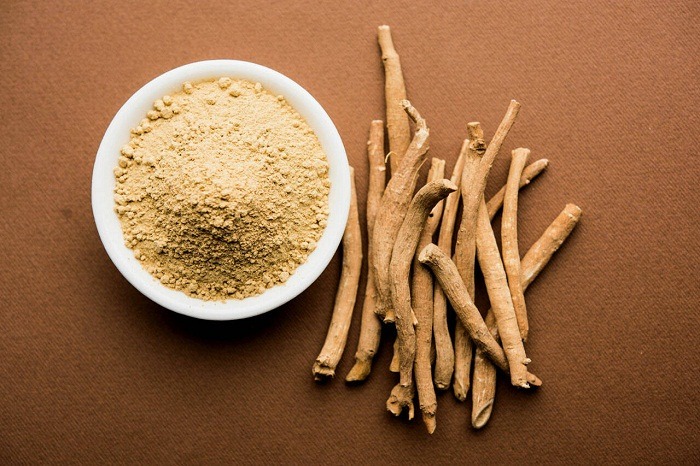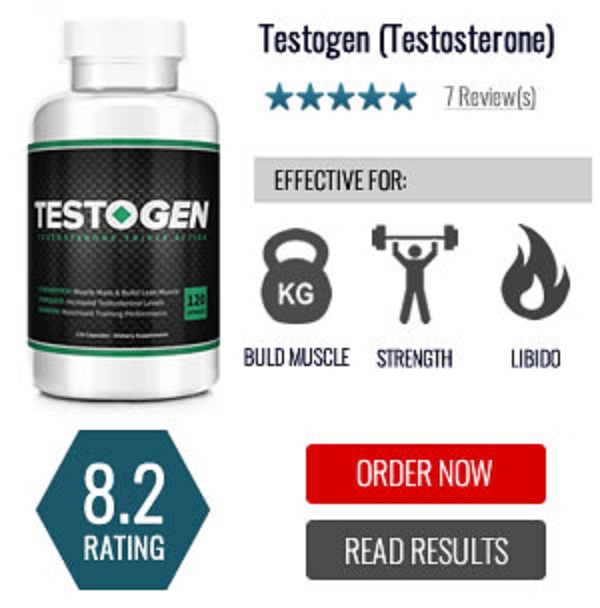Ashwagandha and Testosterone
Contents
- 1 Ashwagandha and Testosterone
- 2 Testosterone Overview
- 3 Ashwagandha Overview
- 4 Research on Ashwagandha and Testosterone
- 5 Considerations and Potential Side Effects
- 6 Ashwagandha and Hormonal Balance in Women
- 7 Unraveling the Full Potential
- 8 The Intersection of Ashwagandha and Stress Reduction
- 9 Emerging Research Avenues
- 10 Considerations for Future Use
- 11 Frequently Asked Questions (FAQs) on Ashwagandha and Testosterone:
- 12 Conclusion
In the vast and ever-expanding landscape of natural remedies and traditional medicine, Ashwagandha, scientifically known as Withania somnifera, has become a focal point of attention for researchers and health enthusiasts alike. Its diverse therapeutic properties, rooted in centuries-old Ayurvedic tradition, have sparked interest in its potential impact on testosterone levels—the crucial hormone that governs various aspects of human health. This comprehensive exploration aims to delve even deeper into the scientific research surrounding Ashwagandha and Testosterone, uncovering its potential benefits, elucidating the intricate mechanisms of action, and discussing crucial considerations for its use in the realm of testosterone regulation.
Related Post: Does Ashwagandha Make You Horny?
Testosterone Overview
To comprehend the potential impact of Ashwagandha on testosterone, it is essential to grasp the pivotal role that testosterone plays in the human body. Produced primarily in the testicles for men and in the ovaries for women, this hormone is instrumental in the development of reproductive tissues, the maintenance of muscle mass, bone density, and the regulation of libido.
Testosterone levels are subject to a delicate equilibrium influenced by various factors, including age, stress, and lifestyle choices. Thus, maintaining an optimal balance of this hormone is crucial for overall well-being. This article aims to explore the potential of Ashwagandha, a renowned adaptogenic herb deeply ingrained in traditional medicine, to contribute to achieving this delicate hormonal balance.
Ashwagandha Overview
Before unraveling the specifics of Ashwagandha’s potential impact on testosterone, let’s take a moment to appreciate the herb itself. Known as Indian ginseng or winter cherry, Ashwagandha boasts a rich history in traditional Ayurvedic medicine. Its roots and leaves are laden with bioactive compounds, including alkaloids, withanolides, and steroidal lactones, believed to be responsible for its diverse therapeutic properties.
Ashwagandha falls into the category of adaptogens—a class of substances that assist the body in adapting to stressors and maintaining a state of balance or homeostasis. With its adaptogenic nature, Ashwagandha emerges as a compelling candidate for exploring its potential impact on hormonal regulation, particularly in the context of testosterone.
Research on Ashwagandha and Testosterone

- Human Clinical Trials
The exploration of Ashwagandha’s influence on testosterone has been marked by numerous human clinical trials, shedding light on its potential benefits for human health. A landmark study published in the “Evidence-Based Complementary and Alternative Medicine” journal in 2015 enrolled 75 infertile men who were administered Ashwagandha root extract for 90 days. The findings were not only statistically significant but also clinically relevant, revealing a substantial increase in testosterone levels alongside improvements in sperm count and motility.
Similarly, a study published in the “Journal of the International Society of Sports Nutrition” in 2015 delved into the effects of Ashwagandha supplementation in resistance-trained men. Participants who received Ashwagandha not only demonstrated a significant increase in testosterone levels compared to the placebo group but also exhibited greater improvements in muscle strength and size. These findings provide valuable insights into the potential benefits of Ashwagandha, particularly for those engaged in resistance training.
- Animal Studies
While human trials provide crucial insights, animal studies have also played a pivotal role in elucidating the potential impact of Ashwagandha on testosterone. A study published in “Pharmaceutical Biology” in 2016 investigated the effects of Ashwagandha root extract on rats. The results were consistent with human studies, revealing a notable increase in testosterone levels. These animal studies not only support the findings in humans but also provide a basis for understanding the underlying physiological mechanisms.
- Mechanisms of Action
Understanding the intricate mechanisms through which Ashwagandha may influence testosterone levels is pivotal in unraveling its therapeutic potential. One proposed mechanism involves the modulation of the hypothalamic-pituitary-adrenal (HPA) axis. The HPA axis, a critical component of the endocrine system, is responsible for regulating stress responses and hormone production. By modulating the HPA axis, Ashwagandha may indirectly contribute to the regulation of testosterone levels.
Moreover, Ashwagandha’s adaptogenic properties are believed to play a significant role in supporting overall hormonal balance. Chronic stress can lead to elevated cortisol levels, which may negatively impact testosterone production. As an adaptogen, Ashwagandha assists the body in adapting to stressors, potentially mitigating the detrimental effects of chronic stress on hormonal levels.
Considerations and Potential Side Effects
While the scientific evidence surrounding Ashwagandha’s positive influence on testosterone levels is promising, a cautious approach is imperative when considering its supplementation. Some individuals may experience mild side effects, including gastrointestinal discomfort, nausea, or allergic reactions. It is important to note that individual responses to Ashwagandha can vary, and consulting with a healthcare professional before incorporating it into one’s routine is advisable, especially for individuals with pre-existing medical conditions or those taking medications.
Furthermore, the optimal dosage and duration of Ashwagandha supplementation remain areas that warrant further exploration. Dosages used in studies vary, and individual tolerance may differ. A personalized approach, guided by healthcare professionals, ensures a more informed and safer integration of Ashwagandha into one’s health regimen.
Ashwagandha and Hormonal Balance in Women

While much of the research on Ashwagandha’s impact on testosterone has focused on men, there is growing interest in its potential benefits for women’s hormonal balance. Women also produce testosterone, albeit in smaller quantities than men, and disruptions in hormonal balance can have various implications for women’s health.
A study published in the “BioMed Research International” journal in 2015 explored the effects of Ashwagandha on the hormonal profile of women with polycystic ovary syndrome (PCOS). PCOS is a common endocrine disorder affecting reproductive-aged women and is often associated with elevated androgen levels, including testosterone. The study found that Ashwagandha supplementation led to a significant decrease in testosterone levels, suggesting a potential role in managing hormonal imbalances in women.
Unraveling the Full Potential
In conclusion, the scientific evidence surrounding Ashwagandha and its impact on testosterone levels is compelling, but the journey is far from over. Human clinical trials and animal studies have laid a solid foundation, indicating that Ashwagandha supplementation may contribute to increased testosterone levels, particularly in specific populations.
However, the road ahead involves addressing various questions. What are the precise mechanisms through which Ashwagandha exerts its influence on testosterone? What is the optimal dosage for different individuals and populations? Are there any long-term effects or potential contraindications that need to be considered?
As we continue to navigate the intricate pathways of herbal medicine and its intersection with modern science, Ashwagandha stands as a beacon of traditional wisdom, beckoning researchers to unravel its secrets and unlock its full potential in supporting hormonal health. The journey promises not only a deeper understanding of Ashwagandha but also the prospect of enhancing human health and well-being through the synergy of ancient wisdom and contemporary science.
The Intersection of Ashwagandha and Stress Reduction
One of the underlying themes in the exploration of Ashwagandha’s impact on testosterone is its role in stress reduction. Chronic stress is a pervasive factor in modern life and is known to contribute to hormonal imbalances, including elevated cortisol levels that can suppress testosterone production. Ashwagandha’s adaptogenic properties, which help the body adapt to stressors, position it as a potential ally in mitigating the negative effects of chronic stress on hormonal balance.
A study published in the “Journal of Evidence-Based Integrative Medicine” in 2016 investigated the effects of Ashwagandha root extract on stress and anxiety levels in adults with a history of chronic stress. The results demonstrated a significant reduction in stress and anxiety levels, reinforcing the adaptogenic nature of Ashwagandha.
Furthermore, stress reduction itself can indirectly contribute to supporting testosterone levels. High stress levels are associated with increased cortisol production, which, in turn, can negatively impact the production of testosterone. By helping the body manage stress, Ashwagandha may contribute to a more favorable hormonal environment.
Emerging Research Avenues
While the existing body of research provides valuable insights, there are several emerging avenues that researchers are beginning to explore. These include:
- Combination Therapies: Investigating the potential synergies of Ashwagandha with other herbs or compounds that may enhance its effects on testosterone. Combinations that harness the strengths of multiple natural substances could provide a holistic approach to hormonal health.
- Long-Term Effects: Exploring the long-term effects of Ashwagandha supplementation on testosterone levels and overall health. Understanding the sustained impact and safety profile of prolonged use is crucial for making informed recommendations.
- Population-Specific Studies: Conducting studies in diverse populations to assess how factors such as age, gender, and health conditions may influence the response to Ashwagandha. Tailoring recommendations based on individual characteristics can optimize outcomes.
- Genetic Variability: Investigating how genetic variability influences individual responses to Ashwagandha. Identifying genetic markers that may predict responsiveness can pave the way for personalized approaches to supplementation.
- Mechanistic Studies: Conducting in-depth mechanistic studies to unravel the precise biochemical pathways through which Ashwagandha influences testosterone production. A deeper understanding of these mechanisms could lead to targeted interventions.
The landscape of research on Ashwagandha and testosterone is dynamic, with ongoing studies adding layers of complexity to our understanding. As the scientific community continues to explore these avenues, the potential applications of Ashwagandha in promoting hormonal health may extend beyond the current scope.
Considerations for Future Use

As individuals consider incorporating Ashwagandha into their health regimens, several considerations should be taken into account:
- Dosage and Formulation: Determining the optimal dosage and formulation of Ashwagandha for individual needs. Different forms of Ashwagandha, such as root powder, extracts, or standardized supplements, may have varying bioavailability and effects.
- Bioavailability Enhancement: Exploring methods to enhance the bioavailability of Ashwagandha, such as combining it with certain substances that may improve absorption. This can ensure that individuals receive the maximum benefits from supplementation.
- Monitoring Hormonal Levels: Regularly monitoring hormonal levels through blood tests, especially for individuals with specific health concerns or those undergoing Ashwagandha supplementation for an extended period. This can help track changes and adjust the dosage accordingly.
- Professional Guidance: Seeking guidance from healthcare professionals, particularly for individuals with pre-existing medical conditions, those taking medications, or women who are pregnant or breastfeeding. A personalized approach ensures that potential benefits are maximized while minimizing risks.
- Quality and Source: Choosing high-quality Ashwagandha supplements from reputable sources to ensure purity and potency. The source of the herb, growing conditions, and extraction methods can all impact the quality of the final product.
Frequently Asked Questions (FAQs) on Ashwagandha and Testosterone:
1. What is Ashwagandha, and how does it relate to testosterone levels?
- Ashwagandha is an adaptogenic herb known for its traditional use in Ayurvedic medicine. Recent research suggests its potential to influence testosterone levels, a key hormone for various aspects of health.
2. How does Ashwagandha affect testosterone levels in men?
- Studies indicate that Ashwagandha supplementation may lead to an increase in testosterone levels in men, particularly in certain populations like infertile men or those engaged in resistance training.
3. Can Ashwagandha benefit women’s hormonal health, including testosterone levels?
- Emerging research suggests potential benefits for women’s hormonal health, with studies indicating a decrease in testosterone levels in women with conditions like polycystic ovary syndrome (PCOS).
4. What are the proposed mechanisms through which Ashwagandha influences testosterone levels?
- Ashwagandha may modulate the hypothalamic-pituitary-adrenal (HPA) axis, a crucial component of the endocrine system. Its adaptogenic properties are also believed to support overall hormonal balance.
5. Are there specific populations that may benefit more from Ashwagandha supplementation for testosterone support?
- Research indicates potential benefits for infertile men, those engaged in resistance training, and women with conditions like PCOS. However, individual responses may vary.
6. How long does it take for Ashwagandha to show an impact on testosterone levels?
- The duration for noticeable effects may vary among individuals. Some studies have shown changes in testosterone levels after several weeks of Ashwagandha supplementation.
7. What is the recommended dosage of Ashwagandha for supporting testosterone levels?
- Dosages used in studies vary, and individual tolerance may differ. Consulting with a healthcare professional for personalized recommendations is advisable.
8. Are there any potential side effects of Ashwagandha supplementation for hormonal support?
- While generally considered safe, some individuals may experience mild side effects such as gastrointestinal discomfort. Consulting with a healthcare professional is crucial, especially for those with pre-existing conditions or taking medications.
9. Can Ashwagandha be combined with other supplements or medications for enhanced testosterone support?
- Combining Ashwagandha with other supplements or medications should be done under the guidance of a healthcare professional to avoid potential interactions or adverse effects.
10. Does Ashwagandha have benefits beyond testosterone support?
- Yes, Ashwagandha is known for its adaptogenic properties, helping the body adapt to stressors. It has been studied for its potential benefits in stress reduction, anxiety management, and overall well-being.
11. Is Ashwagandha safe for long-term use, and are there any potential contraindications?
- While generally considered safe, the long-term effects of Ashwagandha supplementation require further research. Consulting with a healthcare professional is advisable, especially for prolonged use or specific health conditions.
12. Can women who are pregnant or breastfeeding use Ashwagandha for hormonal support?
- Pregnant or breastfeeding women should consult with their healthcare providers before using Ashwagandha, as there is limited research on its safety in these populations.
13. How can I ensure the quality of Ashwagandha supplements?
- Choosing high-quality supplements from reputable sources, checking for third-party testing, and ensuring compliance with regulatory standards can help ensure the purity and potency of Ashwagandha products.
Conclusion
In summary, the journey into the relationship between Ashwagandha and testosterone is an evolving exploration that holds significant promise. From its roots in traditional medicine to the scientific scrutiny of modern research, Ashwagandha emerges as a multifaceted herb with potential implications for hormonal health.
Human clinical trials and animal studies have illuminated the path, indicating that Ashwagandha supplementation may contribute to increased testosterone levels, particularly in specific populations. The adaptogenic properties of Ashwagandha, intertwined with stress reduction, further position it as a holistic approach to supporting hormonal balance.
As research continues to unfold, the synergies of Ashwagandha with stress reduction, its potential benefits for women’s hormonal health, and emerging research avenues open new doors for exploration. However, careful consideration of dosage, formulation, and individual factors is essential for maximizing benefits and ensuring safety.
In the intersection of ancient wisdom and modern science, Ashwagandha stands as a testament to the potential of herbal remedies in promoting human health. The journey toward unlocking its full potential in supporting hormonal health not only deepens our understanding of this revered herb but also holds the promise of enhancing well-being through a harmonious balance of tradition and innovation.



